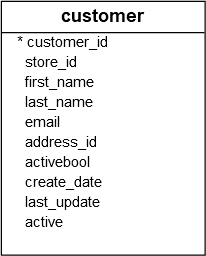PostgreSQL CONCAT_WS() Function
Summary: in this tutorial, you will learn how to use the PostgreSQL CONCAT_WS() function to concatenate strings into a single string, separated by a specified separator.
Introduction to PostgreSQL CONCAT_WS() function
The PostgreSQL CONCAT_WS() function allows you to concatenate multiple strings into a single string separated by a specified separator.
Here’s the basic syntax of the CONCAT_WS function:
CONCAT_WS(separator, string1, string2, string3, ...)In this syntax:
separator: Specify the separator that you want to separate the strings. Theseparatorshould not beNULL.string1,string2,string3, ..: These are strings that you want to concatenate. If any string is NULL, it is ignored by the function.
The CONCAT_WS returns a single string that combines the string1, string2, string3… separated by the separator.
If the separator is NULL, the CONCAT_WS will return NULL.
In practice, you typically use the CONCAT_WS function to combine values from different columns with a custom separator.
PostgreSQL CONCAT_WS() function examples
Let’s take some examples of using the CONCAT_WS() function.
1) Basic PostgreSQL CONCAT_WS() function example
The following example uses the CONCAT_WS() function to concatenate two strings with a space:
SELECT CONCAT_WS(' ', 'PostgreSQL', 'Tutorial') title;Output:
title
---------------------
PostgreSQL Tutorial
(1 row)In this example, we use the CONCAT_WS() function to concatenate the strings 'PostgreSQL' and 'Tutorial' with a space separator. The result string is 'PostgreSQL Tutorial'.
2) Using the CONCAT_WS() function with the table data
We’ll use the customer table from the sample database:
 The following example uses the
The following example uses the CONCAT_WS() to concatenate values from the first_name and last_name columns of the customer table using a space as a separator:
SELECT
CONCAT_WS(' ', first_name, last_name) full_name
FROM
customer
ORDER BY
first_name;Output:
full_name
-----------------------
Aaron Selby
Adam Gooch
Adrian Clary
Agnes Bishop
...The query returns a result set with a single column full_name containing the full names of all customers.
Summary
- Use the
CONCAT_WSfunction to concatenate multiple strings into a single string separated by a specified separator. - The
CONCAT_WSfunction skipsNULLvalues.